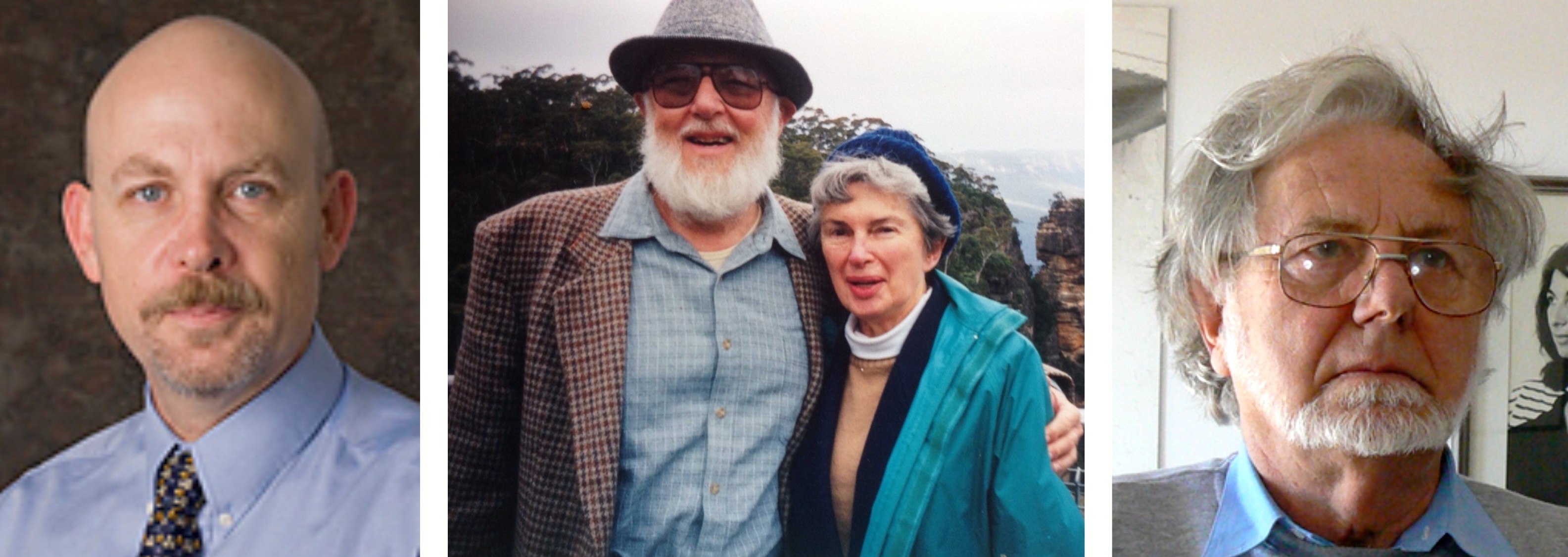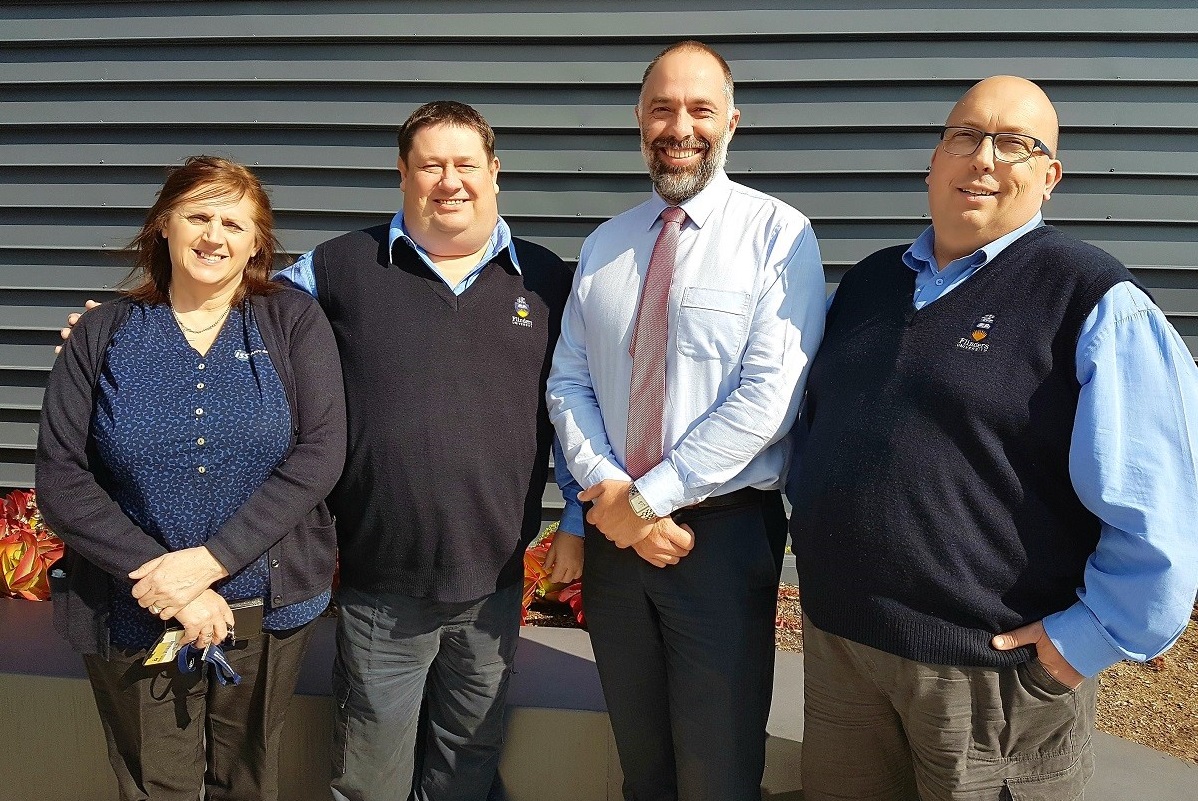
Several members of the Flinders community passed away over the summer break, including valued employees Dr David Astill and Deane Gurney, and previous colleagues Emeritus Professor Brian Abrahamson, Professor Donald Brook and Professor Dennis Smith.
Dr David Astill
The Flinders University community sadly farewelled Dr David Astill of the College of Medicine and Public Health, who passed away suddenly on 9 January 2019, aged just 58.
Dr Astill graduated from Flinders’ graduate entry medical program in 1999. After two clinical years, including a year in the Physician Training Program, he returned to the laboratory to undertake specialist training in Anatomical Pathology, gaining RCPA Fellowship in 2006.
In 2014, he was appointed Head of the Anatomical Pathology Department at Flinders Medical Centre.
Dr Astill was widely respected for his quality of teaching, and his advocacy for academic research in anatomical pathology. His contributions to the field were valuable and he is widely missed by colleagues, mentees and students.
The University has forwarded its condolences and sincere sympathy to Dr Astill’s family and friends.
Deane Gurney
Longstanding staff member Anthony (Deane) Gurney passed away on 28 December 2018 after a lengthy battle with cancer.
Mr Gurney was Team Leader Campus Presentation and Services with the University’s Property, Facilities and Development department.
A highly respected member of the Flinders community and a friend to many, he is remembered as a friendly, supportive, diligent, and hard working colleague who was dedicated to improving the University.
Commencing at Flinders in 1989, Mr Gurney started in the services team as a junior administrative officer and progressed to fleet and services officer and service manager.
Mr Gurney has been recognised for outstanding customer service and commitment to his work as the recipient of the Vice President (Strategic Finance and Resources) employee of the year award, and through his team’s 2017 award for cleaning innovation, from the Tertiary Education Facilities Management Association.
His warmth and professionalism is missed by his team and those whose lives he touched.

Emeritus Professor Brian Abrahamson
Emeritus Professor Brian Abrahamson passed away on 21 January 2019, at 90 years of age.
Commencing his career at Flinders in 1965 as Foundation Professor of Mathematics, Professor Abrahamson enthusiastically taught and researched Algebra and Geometry, then progressed to the role of Deputy Vice-Chancellor before his retirement in 1993.
A highlight of his career was dealing with an insistent parent who was determined their eight-year-old be accepted into a mathematics degree. He ended up accepting the child, taking necessary actions to ensure his welfare on campus. A decade later, the young man, Terry Tao, became the first Australian to win the Fields Medal – the mathematical equivalent of the Nobel Prize.
A proud member of the Jewish community and characterised by a deep respect for others, Professor Abrahamson’s caring nature was evident throughout his life.
He was a rich contributor to Flinders as a staff member and later, a respected member of its Council. He was also a member of the Alumni Association and a generous donor, particularly to the University library. He was presented with an honorary Doctorate from the University in 1994.
Professor Abrahamson is survived by his wife of 60 years, Valerie.
Professor Donald Brook
Transformative arts figure Professor Donald Brook passed away on 17 December 2018, at the age of 91.
Appointed to Flinders University in 1973 to re-establish its visual arts program, Professor Brook continued his pivotal role in the University’s arts until his retirement in 1989.
Initially a sculptor and costume designer, he persistently sought to grow his own and the community’s understanding of the arts, and became a nationally respected art critic, philosopher and pioneer in the arts.
A milestone in his career was establishing the Tin Sheds, which was a place for young and experimental artists in Sydney, during his first academic appointment at the University of Sydney.
During his tenure at Flinders, Professor Brook was a founding member of South Australia’s Experimental Art Foundation (now the Australian Experimental Arts Foundation), which fostered the State’s burgeoning art culture by embracing emerging and conceptual art.
A key figure in the development of Flinders’ outstanding art collections, Professor Brook initiated a re-positioning of the University’s focus on European art to a stronger emphasis on Indigenous art. One of his momentous decisions was the appointment of Emeritus Professor Vincent Megaw AM, initially to study the art of the Western Desert. Associate Professor Megaw went on to play a pivotal role in building the University’s art collection into a world-renowned repository of Indigenous art.
An in-depth account of Professor Brook’s life and contributions can be found on the Artlink website.
Professor Dennis Smith
| Flinders University recently learned of the passing of rehabilitation pioneer, previous staff member Professor Dennis Smith, on 18 November 2018.
Growing up in the UK during the Second World War, Professor Smith endured many nights in air-raid shelters as a child and witnessed his father recover from artillery injuries. This experience shaped his devotion to rehabilitation medicine and the contributions he would go on to make in this developing field. Professor Smith moved to Australia in 1979 to take up a Flinders University role as Foundation Professor, and Bedford Industries Chair of Rehabilitation, in its School of Medicine. He went on to establish the Rehabilitation Studies Unit at The Repat as a centre for rehabilitation research, teaching and training, and served as President of the Australian College of Rehabilitation Medicine from 1989-91. Considered a global pioneer in stroke management and rehabilitation, Professor Smith published some of the earliest randomised trials in this area. After his stint at Flinders, he moved to Sydney where he led international conferences on rehabilitation and became a sought after speaker, both in Australia and overseas. Professor Smith moved back to the UK for a brief period of time where he worked at Southampton University, before he and his wife decided they preferred the Australian lifestyle. They moved back to Adelaide for his final years, where he contributed his skills and passion to the industry until his late 70s. |

